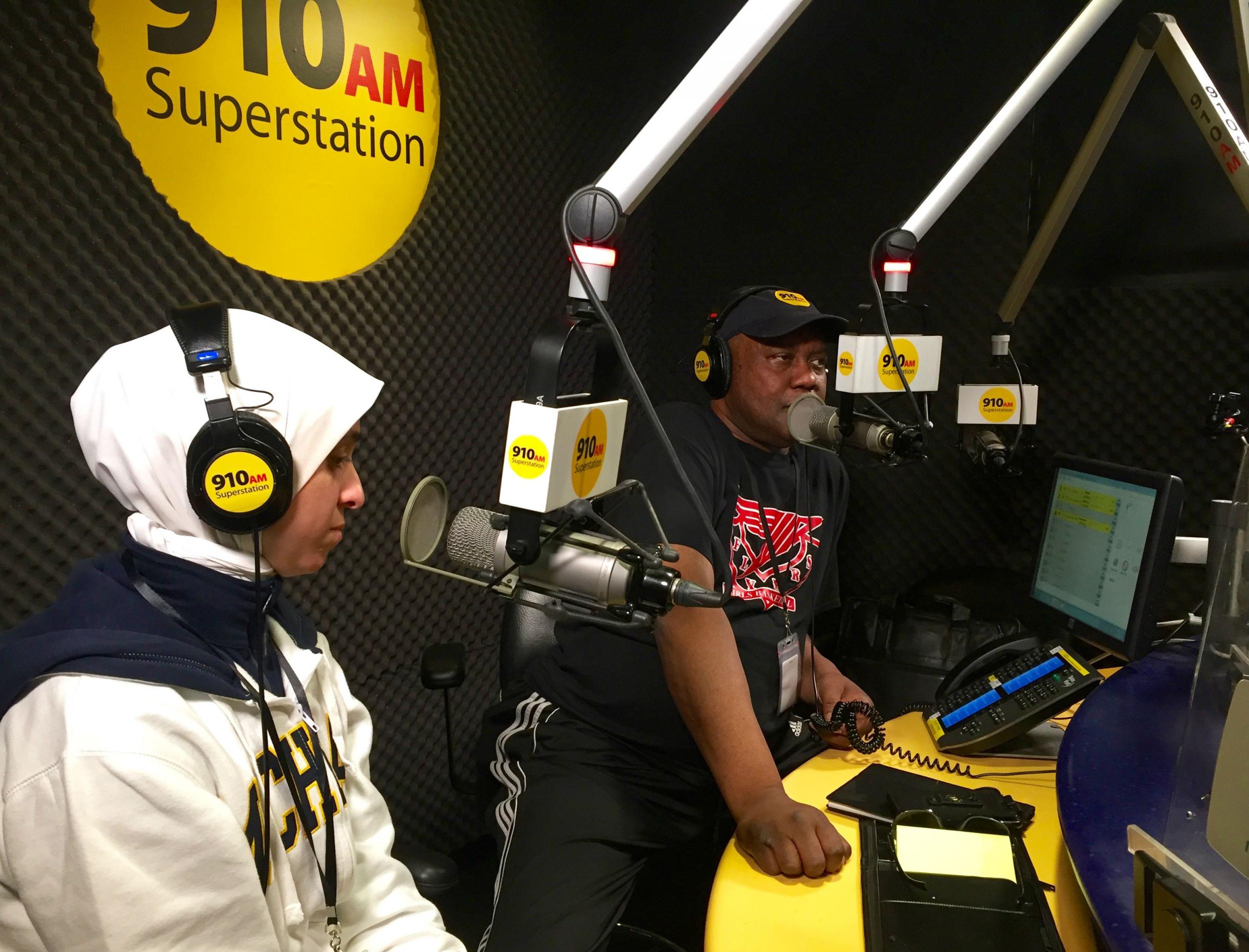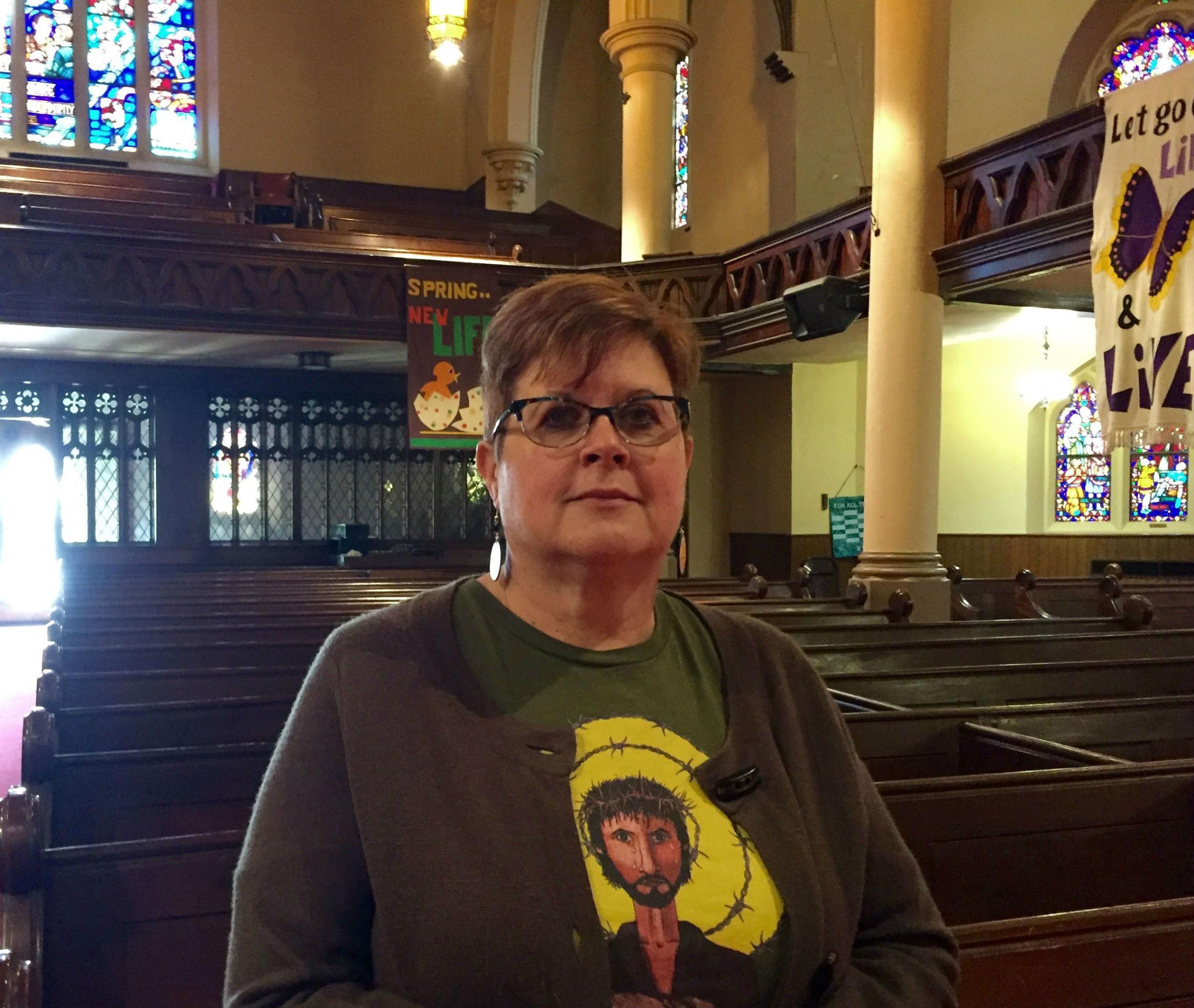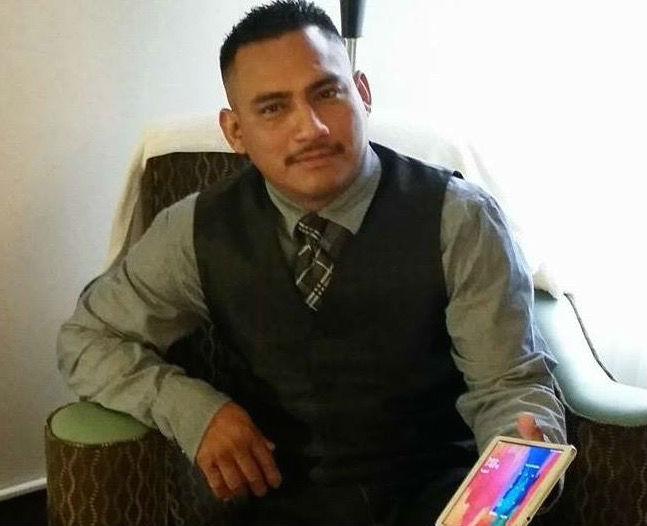'We're all Muslims': How Christians, Jews, Muslims and atheists united against Donald Trump in Detroit
The city is one of America’s most diverse and iconic

Your support helps us to tell the story
From reproductive rights to climate change to Big Tech, The Independent is on the ground when the story is developing. Whether it's investigating the financials of Elon Musk's pro-Trump PAC or producing our latest documentary, 'The A Word', which shines a light on the American women fighting for reproductive rights, we know how important it is to parse out the facts from the messaging.
At such a critical moment in US history, we need reporters on the ground. Your donation allows us to keep sending journalists to speak to both sides of the story.
The Independent is trusted by Americans across the entire political spectrum. And unlike many other quality news outlets, we choose not to lock Americans out of our reporting and analysis with paywalls. We believe quality journalism should be available to everyone, paid for by those who can afford it.
Your support makes all the difference.When Donald Trump announced a ban on travel from seven Muslim-majority countries days after he took office, Fatima Salman decided she had to respond immediately.
On Facebook, she spoke to others outraged over the President’s executive order and his suspension of the country’s immigration plan. Within 17 hours, they had organised a protest at Detroit’s airport that drew up to 10,000 people.
“It was huge,” she said. “There were people from all walks of life. There were people carrying signs saying ‘We all Muslims’ written in Arabic, which they’d printed off Google Translate. Some of them were spelled wrongly, but it was very sweet.”

The call to action led by Ms Salman, 39, a social worker, was typical of the way one of America’s most iconic and diverse cities responded to the President’s executive orders – by uniting and not lying down. As Trump marks 100 days in the White House, people in Detroit from various ethnicities, communities and religions have come together in an unprecedented way to try to protect those at risk to being detained and deported.
Christians, Jews and Muslims have gathered for rallies. Congregants from a Latino catholic church marched to a local mosque, while Muslims came out in solidarity with people from Mexico and Central America.
“You have 120 languages in Detroit. In a five mile radius of where you are, there are 70,000 Arab Americans,” said Hassen Jaber, chief executive of Access, a group that works to help the Arab-American community.
“When the travel ban happened, the community mobilised immediately. We had activists getting involved who we’d never heard of before calling for mass demonstrations.”
He said a key feature of the response is that different groups and communities have worked to support one another. “The Latino community has been hit particularly hard. People have been giving power of attorney in case they are deported.”

His colleague, Nadia El-Zein Tonovo, said: “This moment in time was so unique that people have come together.”
After Trump assumed the presidency, Jill Zundel, a pastor at Detroit’s Central United Methodist Church, one of the oldest Protestant churches in the state, announced that they were to become a sanctuary church and offer a haven to migrants at risk of deportation. (Since then, eight others have followed her example.)
The church is currently providing a home to an African family that is trying to cross the border to Canada.
“This church has been at the forefront of all the movements,” said Ms Zundel, standing in front of the church’s large, stained-glass window.
Asked if her actions were driven by her faith, or else humanitarian concerns, she replied: “I think it’s both. Jesus said ‘I was a stranger and you took me in’. When we started doing this, people said, ‘You’re being brave’, but we’re being Jesus.”
She added: “When Trump did his Muslim ban, we reached out to the Muslim Centre of America and we started hearing from different faiths and people were coming together. We said we need to show solidarity.”
Shaykh Mohamed Almasmari, the imam at Detroit’s Muslim Unity Centre, said his community has been providing financial support to churches that have established themselves as sanctuaries.
“Unity is about power. When you bring communities together, there is so much that can be done,” he said.
“When you’re united then you’re a force that cannot be denied or rejected. That is why we decided to come together to address common concerns.”
Ryan Bates is executive director of Michigan United, an organisation that works to draw attention to issues of poverty in a city that was once known as the Paris of the Midwest. He said people have been working hard for years to make connections between different communities.

“It’s never easy to bring together communities that have different histories,” he said. “But the threat of the Trump administration has brought people together in a new and energised way.”
At the beginning of April, the group organised a march involving people of different faiths that started at a local church and ended at a mosque. Among those to speak to protesters was Mario Hernandez Delacruz, a father of three who had lived in Detroit for 19 years and was fighting the threat of deportation.
“The Muslims of east Dearborn and the Christians of south-west Detroit are neighbours who face many of the same challenges since the presidential election,” he said at the march.
“But, working together with like-minded allies, we can strengthen our communities and work to overcome the racism and xenophobia that are ever present.”
Two weeks later, Delacruz, having lost his asylum struggle, was deported to Mexico. His 23-year-old daughter, Estrella Garcia, drove him to the airport.
Garcia also attended the protest, and spoke alongside her father.
“The march was good. There were a lot of Latinos, Muslims, and different groups, and the media was there,” she said, sitting in the family home in the city’s south-west. “It got the message out.”
Ms Garcia’s father is now living with his mother in Cancun. She said he calls every day and sounds upset; he has been separated from his family and is obliged to remain in Mexico for 10 years before he can apply to return to the US.
She said she did not regret taking part in the fight. “If you don’t know about things, there will be no way you can help,” she said. “If you get together, you will be able to fight.”
Since she organised the protest at the airport, Ms Salman has been invited to host a Sunday night radio show on a local station where she talks about issues affecting the community. She always seeks to be positive.
“That is what I keep on saying – that we have the energy to change things.”
Join our commenting forum
Join thought-provoking conversations, follow other Independent readers and see their replies
Comments